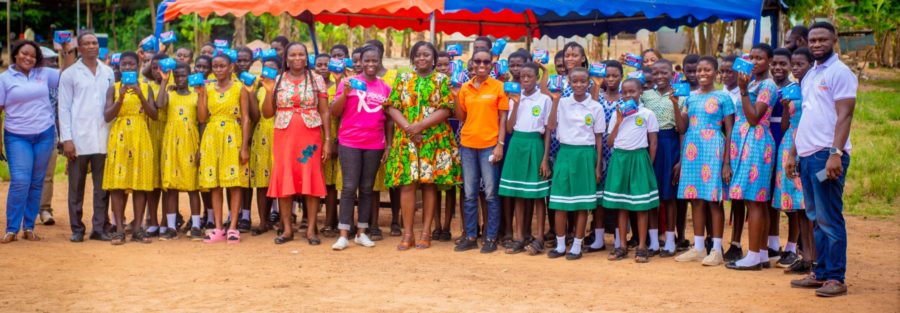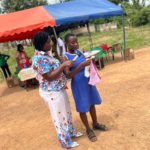As part of activities to mark World Menstrual Hygiene (WMH) Day, ARHR, in partnership with its Community-Based organization, the Young and Lonely Foundation, engaged approximately 200 adolescent students at Agona Bobikuma on menstrual hygiene management (MHM). The initiative aimed to provide information and create a supportive environment that challenges stigma and normalizes menstruation for girls.
Despite the enthusiasm and eagerness to learn, the students, particularly the girls, opened up about persistent and deeply rooted challenges they face while menstruating in school. These challenges form critical barriers to menstrual health and dignity and highlight the urgent need for stronger support systems at home, school, and within the community.
Lack of Access to Menstrual Hygiene Information
Many girls expressed that they lack adequate and accurate information on menstruation. The subject is often considered taboo, limiting open conversations and leaving girls to rely on myths or misleading advice from peers. This lack of information hampers their ability to manage their periods confidently and safely.
“No one told me what to expect, but some of my friends were already seeing their period so we just ask them or try to figure it out ourselves, people act like it’s a bad thing or shameful thing”, one girl said.
During the session, students were empowered with knowledge on the menstrual cycle, proper pad use, and maintaining personal and menstrual hygiene. A practical demonstration on how to lay, use, and dispose of sanitary pads was also conducted, equipping them with the skills they need for effective menstrual hygiene management.
Inadequate Disposal Facilities and Private Changing Spaces
Another major issue raised was the absence of safe and private changing rooms in schools. Girls shared experiences of having to change in uncomfortable or unsanitary spaces, which contributes to their embarrassment and anxiety. Additionally, the proper disposal of used sanitary products remains a concern due to limited waste management options, particularly in schools and churches.
“I throw my pad in the toilet, because I do not know the proper way of disposing it off, dumping them in the toilet is what most of us have all known”, another girl mentioned.
The education and sensitization session emphasized the importance of proper pad disposal and encouraged both students and school management to advocate for dedicated facilities that respect girls’ menstrual health needs.
Coping with Menstrual Pain in the Classroom
Menstrual pain, often dismissed as a minor issue, was highlighted by several girls as a serious barrier to participation in school activities. Without adequate pain relief, rest periods, or understanding from educators, girls sometimes have to miss classes or struggle through discomfort silently.
The presence of teachers and some mothers at the event presented a unique opportunity to address these concerns directly. It fostered dialogue on how schools and families can better support girls experiencing menstrual discomfort.
Supporting the Menstrual Needs of All
About 250 sanitary pads were distributed to the students, teachers, and some mothers who attended the event. The Agona West District Health Directorate took part in the event and facilitated the educational discussions and demonstrations.
This event underscored the importance of involving stakeholders, including community members, adolescents, parents, and educators, in breaking the silence and stigma surrounding menstruation. By educating young people and equipping them with the right tools and knowledge, a more inclusive and supportive society where no girl is held back because of her period can be built.



